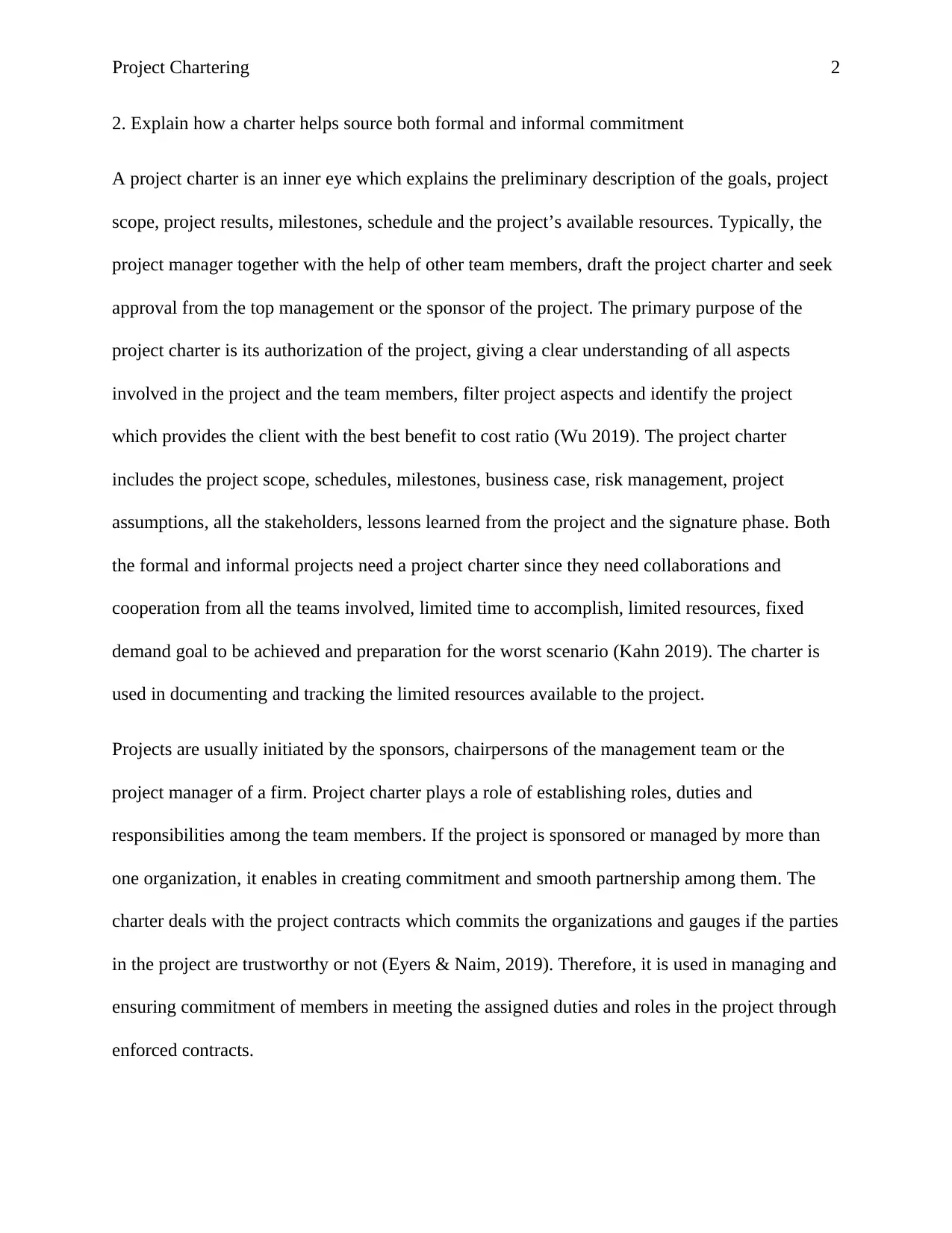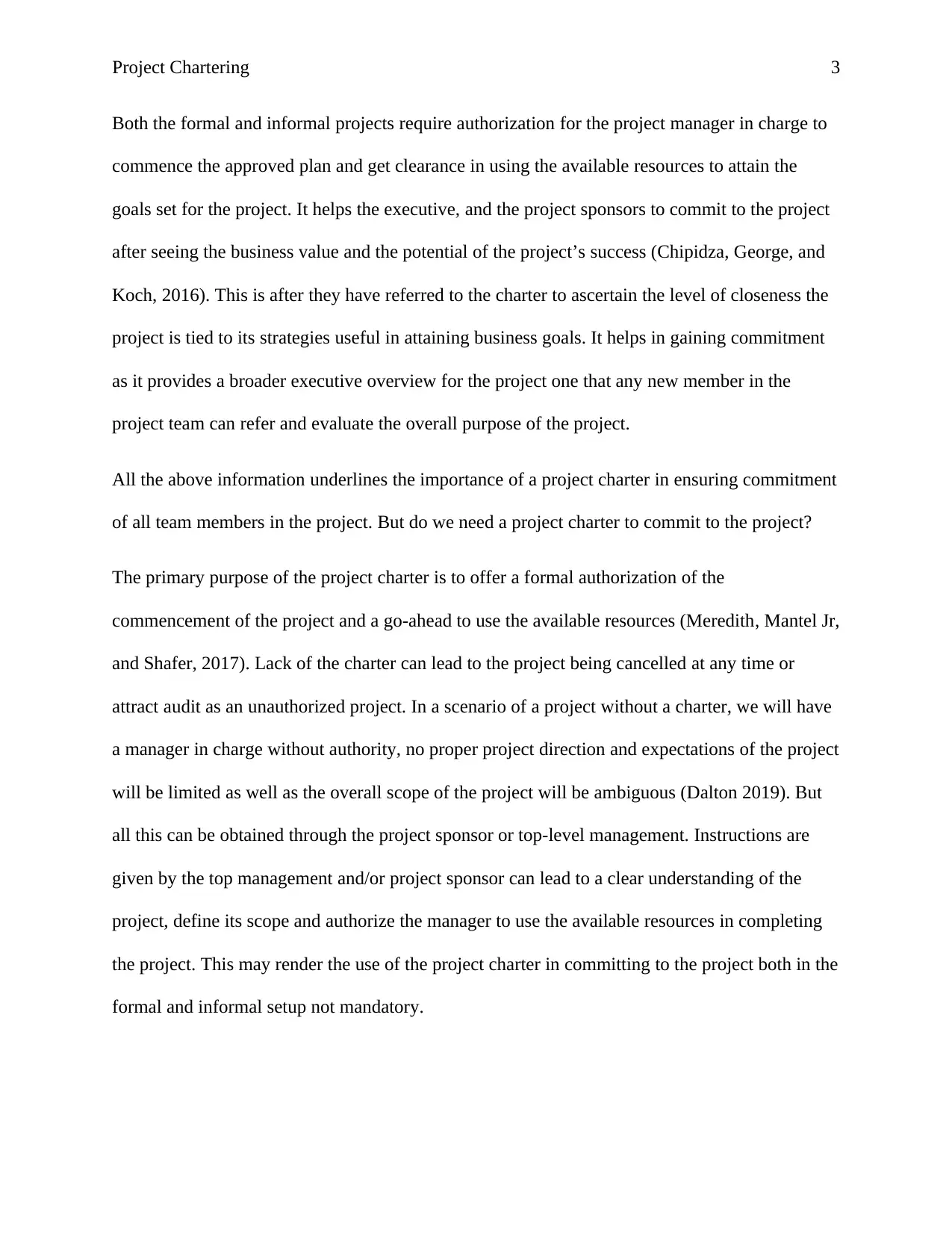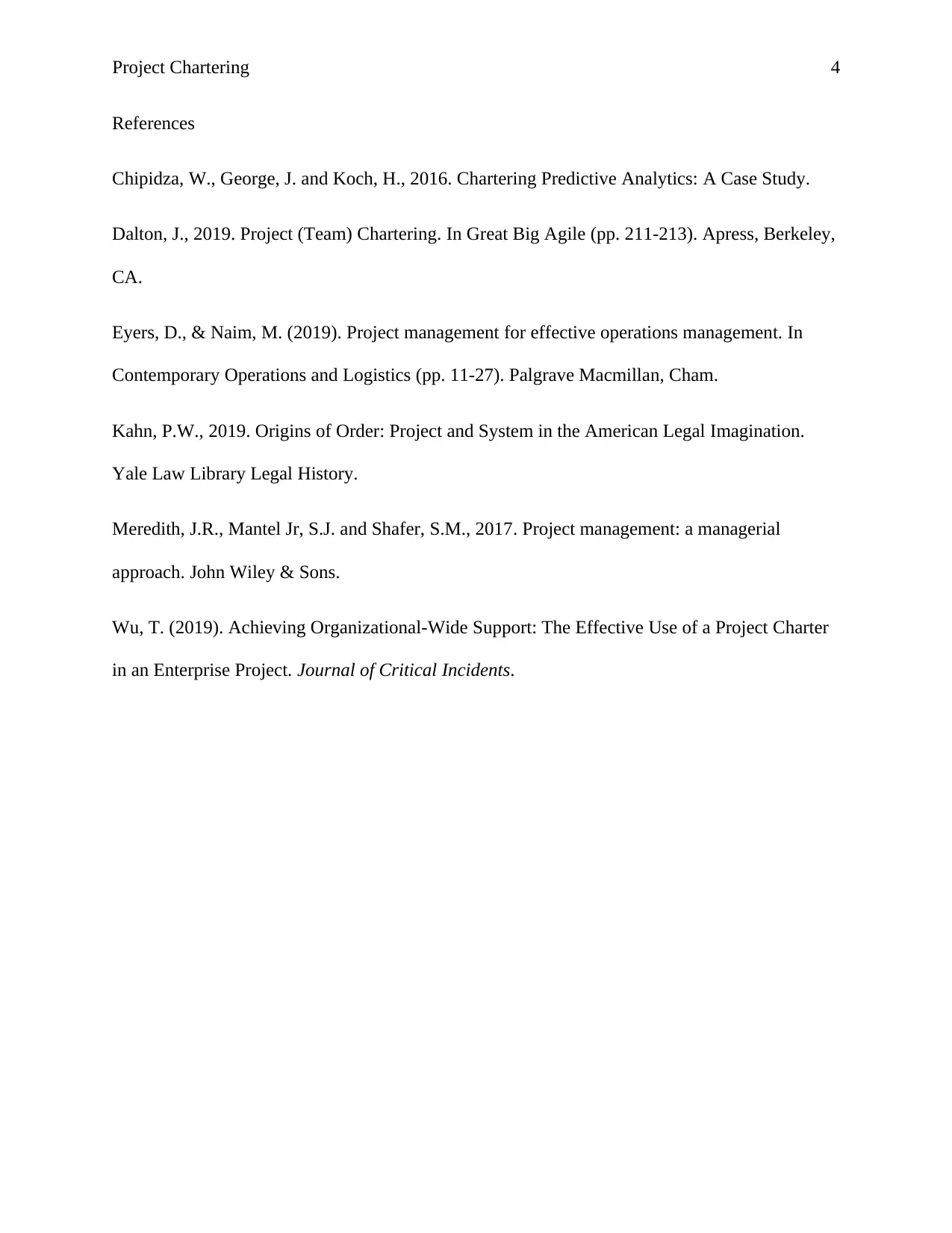Analysis of Project Charter's Role in Securing Commitment
VerifiedAdded on 2022/09/14
|4
|883
|56
Report
AI Summary
This report examines the role of a project charter in fostering both formal and informal commitment within project settings. The charter is defined as a preliminary document outlining project goals, scope, results, milestones, schedule, and available resources. It is typically drafted by the project manager and team, seeking approval from top management. The primary function of a project charter is to authorize the project, clarify all aspects, filter project aspects, and identify projects with the best cost-benefit ratio. The report emphasizes the importance of the charter in establishing roles, duties, and responsibilities, facilitating commitment, and managing resources. It discusses the need for project authorization and executive overview, which enables all team members to understand the overall purpose of the project. The report also explores whether a project charter is mandatory for commitment, highlighting that while instructions from top management can define scope and authorize resources, a charter is essential for authorization and comprehensive project management.
1 out of 4










![[object Object]](/_next/static/media/star-bottom.7253800d.svg)